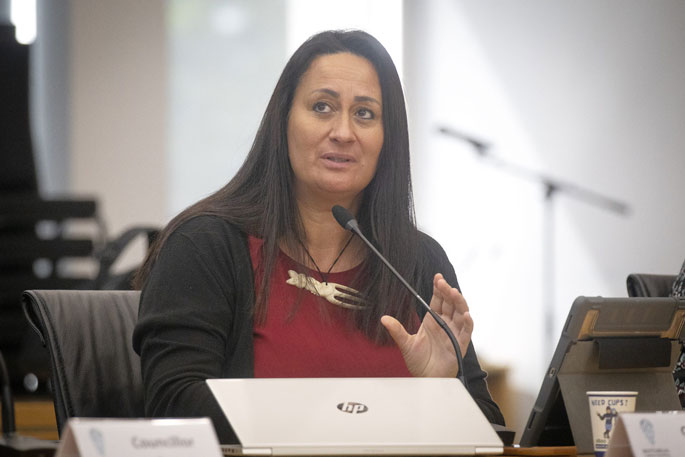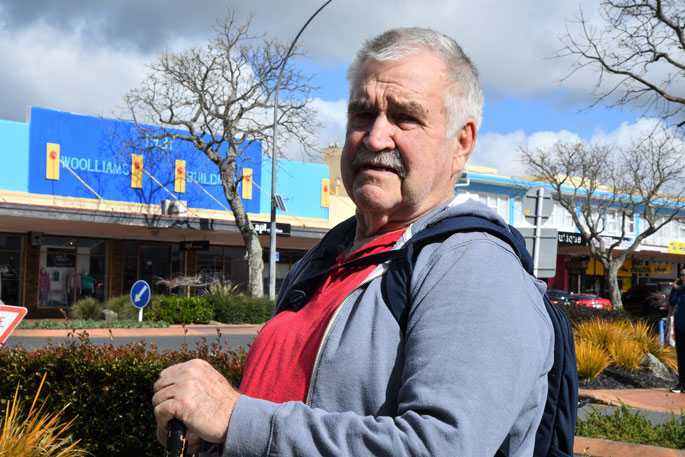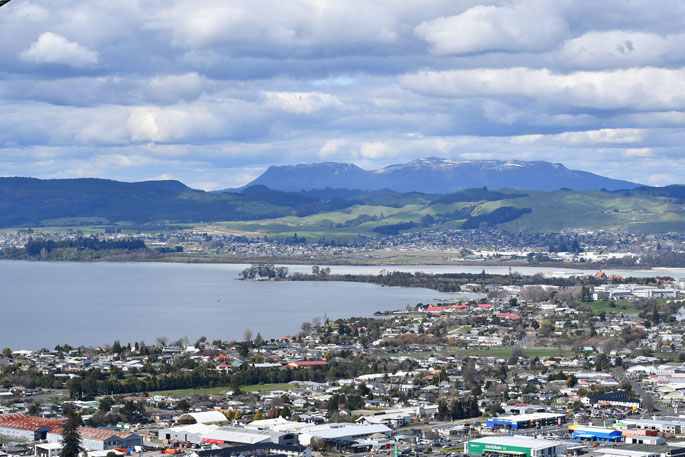This time last year Rotorua was in a poor position - a description used by the city’s council in its own pre-election report.
But whether that has changed depends on who you ask, as elected members and the public share their views.
The Rotorua Lakes Council released the report ahead of the local body elections and it showed that while the district and its people have been “extremely prosperous” in the past, over the last seven years an “increasing trend” of socio-economic deprivation emerged.
It said the council was concerned measures of wellbeing - such as home and rental affordability, crime, income and secondary school retention - were worsening in Rotorua compared with other regions.
At the time, then-mayor Steve Chadwick said the pandemic had “exacerbated” existing issues and the problems would not “disappear” with a new council.
Local Democracy Reporting spoke to elected members and people in the community as to whether they believed anything had changed since the report was released.
Mayor Tania Tapsell said: “Rotorua is now a better place for all.”
The new council had hit the ground running and had made positive progress, she said.
“We stopped the spend and fixed a $5.6 million deficit,” Tapsell said.
“We are solving the Fenton St issues and reducing the use of motels for emergency housing. We’ve partnered with police to combat crime and antisocial behaviour with positive results, and we are restoring Rotorua’s reputation and fortunately have seen tourism bounce back.”
 Rotorua mayor Tania Tapsell shares her views a year on from the pre-election report. Photo / Laura Smith.
Rotorua mayor Tania Tapsell shares her views a year on from the pre-election report. Photo / Laura Smith.
She said business confidence was up and most of the feedback from local surveys says Rotorua was improving. This included the Rotorua Business Pulse Survey, the latest released in April.
“Emergency housing motels were the big issue and within two months of the election, we had signed the Rotorua Housing Accord. The first collective commitment of its kind between [the] council, Government and Te Arawa to improve the housing situation in Rotorua and reduce the use of emergency housing in Rotorua to near zero as soon as possible,” Tapsell said.
Since October, she said the number of motels used for emergency and temporary housing had dropped from 45 to 27 as of June, and the number of households in emergency and temporary housing reduced from 435 to 327.
“There is still work to do and as a council, we will continue to build on this momentum through our priority areas - economy, infrastructure, community and housing,” Tapsell said.
She said there had also been changes to the executive team structure to more efficiently and effectively deliver in its priority areas.
Councillors were also asked their thoughts on what had changed since the report was released.
Māori ward councillor Lani Kereopa’s viewpoint was in contrast to the mayor’s.
Kereopa said while she had not seen any updated statistics since the report was released, she “can’t imagine a lot has improved”.
Despite the report stating an increasing trend of socio-economic deprivation and worsening states of wellbeing in Rotorua, she noted how both local and regional council rates rose this year.
 Rotorua councillor Lani Kereopa. / Andrew Warner.
Rotorua councillor Lani Kereopa. / Andrew Warner.
Kereopa also referred to the report informing the median household income was $75,000, but said it failed to acknowledge the median household income of Te Arawa whānau was $22,000.
“Our council needs to better understand it’s a public health agency,” Kereopa said.
“Its job is to do things like reduce air pollution, address inequities and inequalities, and create connected, cohesive communities to improve community health and wellbeing.”
Kereopa believed the council needed to make systems changes, and a starting point would be requiring equity across services to be ingrained within staff processes and in council-controlled organisations.
“The imported homeless issues that were plaguing the CBD have now been moved to the suburbs.”
The impact of that, as well as housing intensification, were ongoing threats to the resilience of hapū and iwi papakāinga communities built on whakapapa connections, she said.
Another suggestion she had was that the Te Tatau o Te Arawa Mauri Ora Housing Development Wellbeing Compass needed to be utilised as the framework for the council’s Future Development Strategy.
She said it should also be integrated and actioned alongside Te Arawa Vision 2050 and Te Tūāpapa o ngā Wai o Te Arawa to place the wellbeing of people, culture and te taiao at the core of Rotorua’s future housing provision and urban development.
As for crime, she said the council’s community safety plan needed to focus less on punitive measures and more on preventative and restorative approaches. Kereopa previously spoke to Local Democracy Reporting about this and said poverty was the root cause of crime.
She said the council’s current Rotorua Climate Action Plan 2021 resourcing was 0.1FTE. In her view, the council as an organisation had an obligation to “get serious” about climate change adaptation planning and resilience building and she would be pushing for appropriate resourcing in the next Long-Term Plan budget, she said.
Kereopa would also advocate for KPI reports for council chief executives to cover what they were doing to ensure Māori have input into council policy writing.
Councillor Robert Lee also noted the transfer of Fenton St problems moving “permanently” into the suburbs.
He believed the council’s housing policy was a continuation of the last council’s and was inadvertently causing it.
Restore Rotorua spokesman Trevor Newbrook said his gut feeling was that there had been some improvement in law and order and crime.
”But I feel we are starting to see a reverse of that,” Newbrook said.
For a few weeks over summer, he said there was a feeling of safety in the city but it had since disappeared, with begging and intimidation seemingly on the rise.
Newbrook said there were people with mental health issues living in backpackers lodges, which was of “grave concern”.
Members of the public also provided their views when asked if they had seen any council actions resulting in improvements from issues raised in the report, such as crime and housing.
 Seventy-seven-year-old Victoria resident Wayne Judson. Photo / Laura Smith.
Seventy-seven-year-old Victoria resident Wayne Judson. Photo / Laura Smith.
Victoria resident Wayne Judson, 77, said crime was “just as bad as ever”.
Judson said a relative, who lived in Waikato, believed crime in Rotorua to be high and so that when she brought guests to the city they stayed in Taupō or Whakatāne.
A Springfield resident, who provided her comment anonymously, said she heard about new housing developments under way and believed any housing was a good thing.
She said she did not see any crime happening but believed the council and police were “doing the best they can” under “trying circumstances”.
Public Interest Journalism funded through NZ On Air.




0 comments
Leave a Comment
You must be logged in to make a comment.